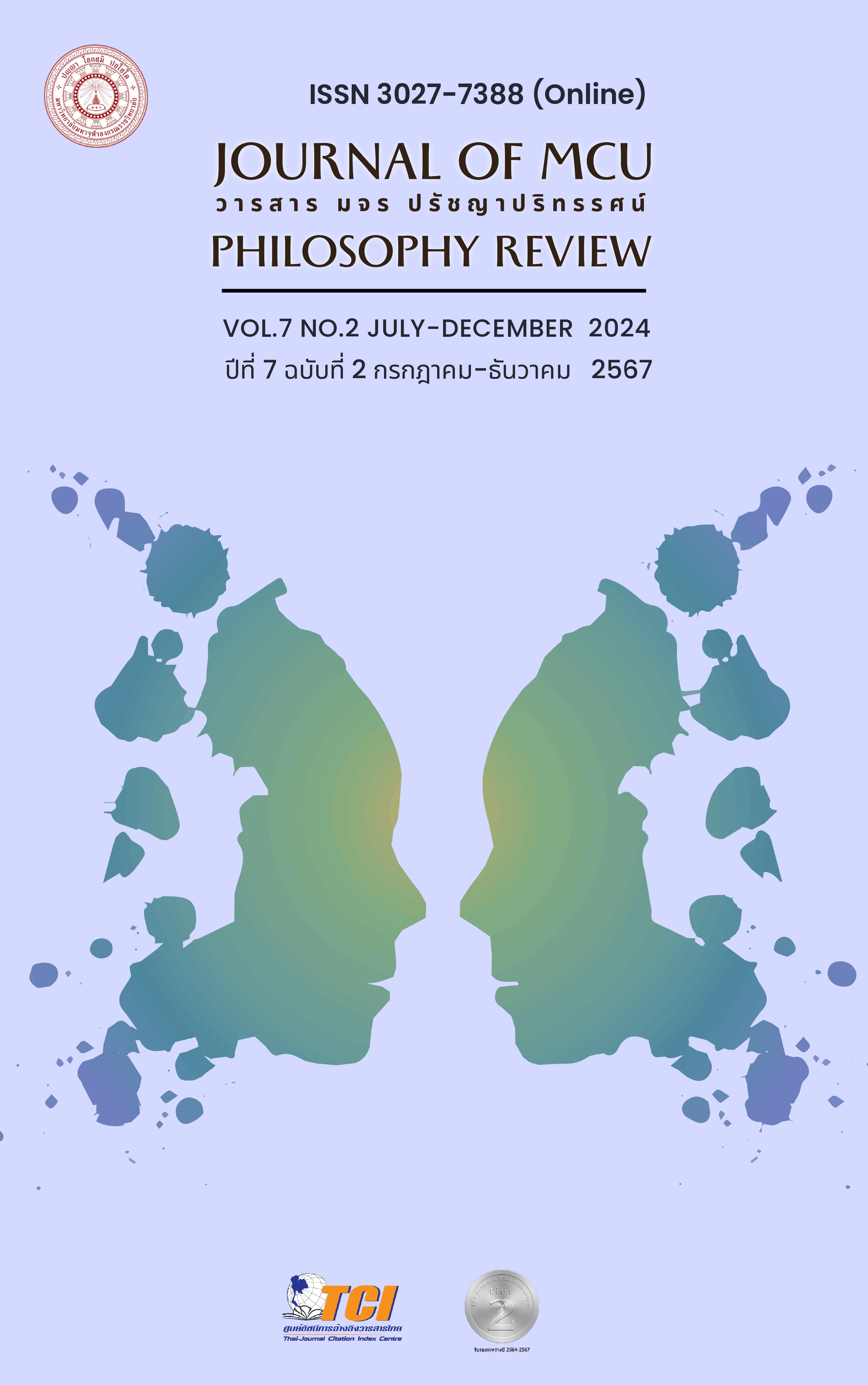An Integration of Buddhist Philosophy of Education with Pragmatist Philosophy of Education
Main Article Content
Abstract
This article has objectives: 1) to study Buddhist philosophy of education, 2) to study Pragmatist philosophy of education, and 3) to critically integrate Buddhist educational philosophy with pragmatist educational philosophy. This research employed the documentary research methodology done by studying documents and then analyzing reasons and thereby evaluating reasons and then making conclusion accordingly. In the research, it was clearly found that Buddhist philosophy of education uses the concept of threefold training to develop complete humanity, the strong point involves the clear-cut explanation of human nature, weak embraces the origin of idea in the time of agricultural society. Pragmatist philosophy of education assumes that knowledge gained from the result of what one practiced is the right method of learning, one the one hand, its strong point is obviously caused by the age of science and technology under the Democratic society, on the other hand, the weak point is the idea which may give the absolute freedom to the learner in order to compete with others while satisfying one’s need. Therefore, in order to visualize the holistic concept of education. This article therefore integrated these two philosophies of educations to show is good philosophy of education should be the development of humanhood and essential skills in living life peacefully till reaching the goal of life in the higher level.
Article Details

This work is licensed under a Creative Commons Attribution-NonCommercial-NoDerivatives 4.0 International License.
บทความที่ได้รับการตีพิมพ์เป็นลิขสิทธิ์ของวารสาร มจร ปรัชญาปริทรรศน์
ข้อความในบทความที่ได้รับการตีพิมพ์ในวารสาร ถือเป็นความรับผิดชอบของผู้เขียนบทความ และข้อคิดเห็นนั้นไม่ถือว่าเป็นทัศนะและความรับผิดชอบของกองบรรณาธิการวารสาร มจร ปรัชญาปริทรรศน์
References
มหาจุฬาลงกรณราชวิทยาลัย. (2539). พระไตรปิฏกภาษาไทย ฉบับมหาจุฬาลงกรณราชวิทยาลัย. กรุงเทพมหานคร: โรงพิมพ์มหาจุฬาลงกรณราชวิทยาลัย.
ประทุม อังกูรโรหิต. (2565). ปรัชญานิยม: รากฐานปรัชญาการศึกษาในสังคมประชาธิปไตย. กรุงเทพมหานคร: สำนักพิมพ์จุฬาลงกรณมหาวิทยาลัย.
พระธรรมปิฏก (ป.อ.ปยุตฺโต). (2542). การศึกษาเพื่ออารยธรรมที่ยั่งยืน. (พิมพ์ครั้งที่ 4). กรุงเทพมหานคร: สหธรรมมิก.
พระธรรมปิฎก (ป.อ.ปยุตฺโต). (2543). กระบวนการเรียนรู้เพื่อพัฒนาคนสู่ประชาธิปไตย. (พิมพ์ครั้งที่ 4). กรุงเทพมหานคร: มหาจุฬาลงกรณราชวิทยาลัย.
พระพรหมคุณาภรณ์ (ป.อ.ปยุตฺโต). (2556). ปรัชญาการศึกษาไทย ภาคพุทธธรรม: แกนนำการศึกษา. กรุงเทพมหานคร: สหธรรมิก.
สมเด็จพระพุทธโฆษาจารย์ (ป.อ.ปยุตฺโต). (2562). พุทธธรรม ฉบับปรับขยาย. (พิมพ์ครั้งที่ 55). กรุงเทพมหานคร: มหาวิทยาลัยเอเชียอาคเนย์.
วิทย์ วิศทเวทย์. (2555). ปรัชญาทรรศน์: ปรัชญาการศึกษา. กรุงเทพมหานคร: จุฬาลงกรณ์มหาวิทยาลัย.
อัครพงษ์ สัจจวาทิต. (2546). ปรัชญาการศึกษาแบบผู้เรียนเป็นศูนย์กลาง. กรุงเทพมหานคร: ข้าวฟ่าง.
George R. Knight. (1998). Philosophy and Education. Berrien Springs: Andrews University Press.
John Dewey. (1955). Democracy and Education. New York: The Macmillan Publishing.
John Dewey. (1965). Experience and Nature. Calcutta: Oxford book company.
John Dewey. (1975). Experience and Education. New York: The Macmillan Publishing.


